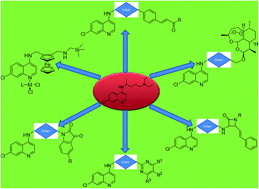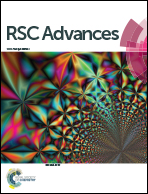4-Aminoquinoline-hybridization en route towards the development of rationally designed antimalarial agents
Abstract
The resistance of Plasmodium falciparum, the causative agent of malaria, against quinine and chloroquine along with the lack of malaria vaccines has encouraged the development of various synthetic strategies towards biologically active scaffolds. An emerging strategy in medicinal chemistry, termed molecular hybridization, involves the covalent fusion of two or more drugs, active compounds, and/or pharmacophoric units into a hybrid compound, with fascinating activities and multiple but not essentially simultaneous pharmacological targets. 4-Aminoquinolines are considered as promising antimalarials and 4-aminoquinoline hybridization is considered as an attractive and feasible approach for the development of new molecular frameworks for averting and delaying the emergence of drug resistance along with improved efficacy. The present review article describes the recent developments on the 4-aminoquinoline-hybridization towards the development of new antimalarials.


 Please wait while we load your content...
Please wait while we load your content...